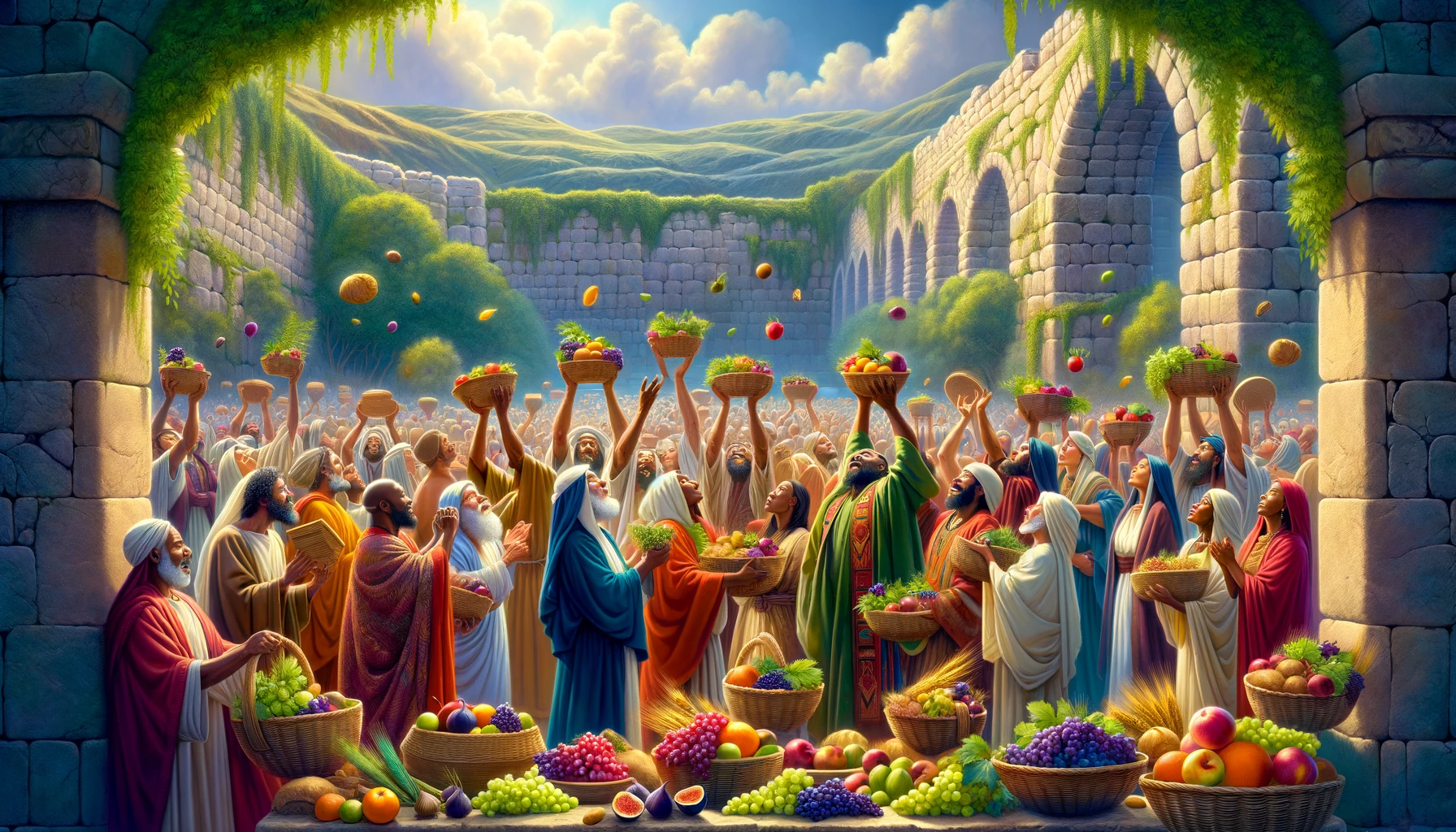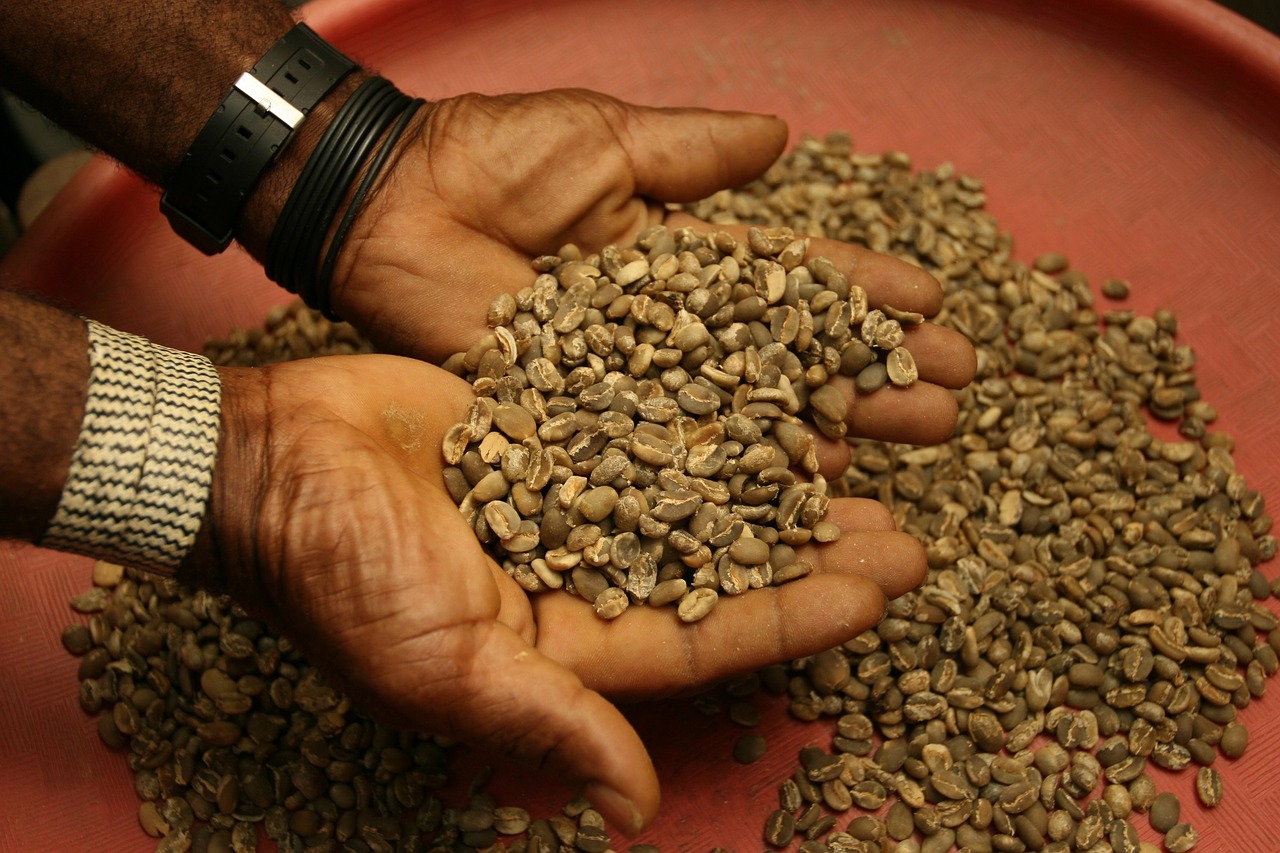The ancient Israelites celebrated the Feast of First Fruits. The Lord commanded them to offer the first fruits of the harvest to the priest (Leviticus 23:10-11). Offering the first fruits acknowledged the Lord’s provision and blessings. In the New Testament, the concept of first fruits is a metaphor (1 Corinthians 15:20). The feast symbolizes God’s providence, faithfulness, and the promise of new life through Jesus Christ.
Table of Contents
- Key Takeaways:
- The Old Testament Origins of the First Fruits
- First Fruits Connection to Passover
- Christ as the First Fruits in the New Testament
- The Significance of First Fruits in the Christian Faith
- Conclusion
Key Takeaways:
- Feast of First Fruits: Originated in the Old Testament as a gratitude celebration for harvest, symbolizing God’s provision and deliverance.
- Connection to Passover: Linked with Passover (Israelites exodus from Egypt), highlighting themes of freedom and God’s faithfulness.
- Christ as First Fruits: Jesus symbolizes the first fruits in the New Testament, representing resurrection and eternal life.
- Significance in Christian Faith: Deepens understanding of God’s provision, prompting gratitude and generosity.
- Practical Application: Suggestions for daily life, including volunteering and prayer.
- Conclusion: Reflects on eternal life through Jesus Christ and continuous spiritual harvest.
The Old Testament Origins of the First Fruits

The Feast of First Fruits is first mentioned in the Book of Leviticus (Leviticus 23:9-14). The Law of Moses commanded the Israelites to present the first produce of their harvest to the Lord. This act was an offering of thanksgiving and recognition of His provision. The Israelites brought a sheaf of the first fruits of the harvest to the priest and waved before the Lord.
The first fruits appear again in Deuteronomy 26:1-11. The passage outlines how the Israelites should thank God for the land he gave them and its produce. They take the first of all produce and take it to the place God chooses as His dwelling. That’s where they give the first fruits to the priest. And they acknowledge how God delivered them from Egypt.
The Feast of First Fruits was an act of thanksgiving.
The harvest was a time of joyous celebration. The Israelites acknowledged that all blessings flowed from God. So, they dedicated the first and best of their produce to the Most High. The Feast of First Fruits was an act of thanksgiving and remembrance of God’s goodness.
First Fruits Connection to Passover

The Feast of First Fruits has ties to Passover (Exodus 12). The Passover celebrates the Hebrew Israelites’ deliverance from Egypt. They observed this event in early spring, on the 14th day of the Hebrew month of Nisan (Exodus 12:6-7).
The Passover celebrates the Hebrew Israelites’ deliverance from Egypt.
The festival lasted for seven or eight days. The ceremony started with a meal called the Seder where the Exodus story is retold. They also ate foods symbolizing their Exodus. These included:
- Matzah (unleavened bread): symbolizes the haste of the Israelites’ departure from Egypt
- Bitter herbs: represent the bitterness of slavery
- Charoset (a sweet paste of fruit and nuts): symbolizes the mortar Israelite slaves used to build the pyramids
- Lamb shank bone: commemorates the sacrificial lamb.
Passover embodies themes of freedom, redemption, and God’s deliverance. The Feast of First Fruits occurred the day after the Sabbath following Passover. Both celebrations reinforced ancient Israel’s remembrance of God’s faithfulness toward them.
Christ as the First Fruits in the New Testament

In the Old Testament, the first sheaf of the harvest was a pledge of the full harvest to come. The New Testament expands the concept of first fruits beyond its original agricultural context. It’s a metaphor that applies to the Holy Spirit, believers, and Christ himself.
Believers have the promise of resurrection and eternal life.
For example, the resurrection of Jesus Christ represents the first fruits. In 1 Corinthians 15:20, the Apostle Paul likens Jesus to the initial yield. He wrote that Jesus is the “firstfruits of them that slept.” Paul explains there’s a promise of more to come. What does this mean? Believers have the promise of resurrection and eternal life. Other first fruits references include:
- Romans 8:23: Scripture describes believers as having the “firstfruits of the Spirit.” This indicates the Holy Spirit’s presence as a foretaste of future redemption.
- Romans 11:16: The consecration of the first fruits sanctifies the whole harvest. This verse symbolizes the holy status of the people of God.
- James 1:18: James describes believers as “firstfruits” of God’s creation.
These verses emphasize the concept of first fruits as a metaphor for Christ’s resurrection.
The Significance of First Fruits in the Christian Faith

Christians can learn much from the Feast of First Fruits. It can nurture a deeper respect for God’s provision. Additionally, it reveals the depth of our salvation in Christ today. It encourages a posture of gratitude, reminding us of our dependence on God for all things. Moreover, it invites us to live as people of hope, knowing that in Christ, the best is always yet to come.
The feast also encourages generosity.
The feast also encourages generosity. Christians can offer first fruits in various ways. Here are a few ideas:
- Volunteer in the church or community
- Start each day with prayer or Bible study
- Share the initial fruits of your vegetable garden to those in need
These acts symbolize giving the first and best of one’s resources, time, and spiritual life to honor and thank God.
Conclusion
The Hebrew Israelites celebrated the Feast of First Fruits. They honored God for the first yield of their harvest in the Promised Land (Leviticus 23:9-14). The celebration took place the day after the Sabbath following Passover. This marked the beginning of the grain harvest, specifically barley. In the New Testament, the Apostle Paul describes Jesus as the first fruit (1 Corinthians 15:20). He affirms Jesus’ resurrection will harvest new souls for God’s Kingdom. As we reflect on the meaning of the feast, remember through Jesus Christ we have eternal life.








